Springs are toughened metal coils that store and release energy, helping objects to return to a particular position. They stretch when a force is applied to them and returns to their original shape when released. Read More…
R&L Spring Company manufactures custom spring and wire formed components for industries such as powersports, automotive, medical devices, and general industrial. Products include compression, extension, and torsion springs, as well as rings, wire forms, fourslide components, and long coils. Wire diameters available from .001" to .750" in both shaped wires and flat stocks. Their...
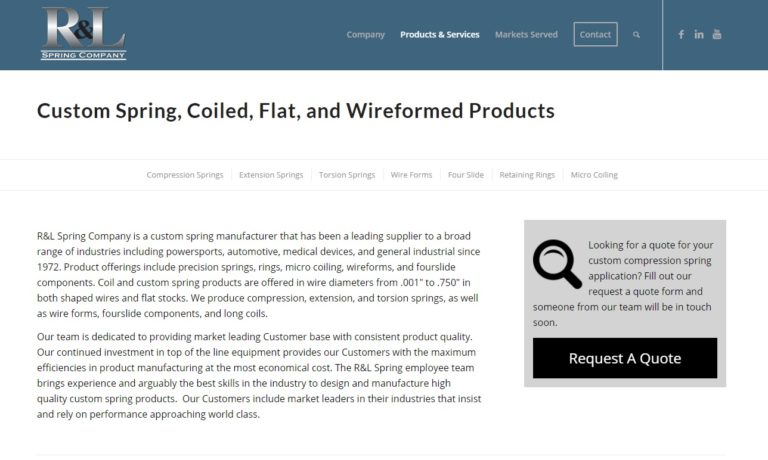
Coiling Technologies, Inc. has the experience and expertise to design and engineer the custom springs to meet your specific requirements. We are a leading manufacturer of high-tech, specialized springs and we are committed to providing quality products with fast lead times. Our automated process allows us to produce the reliable springs you need.
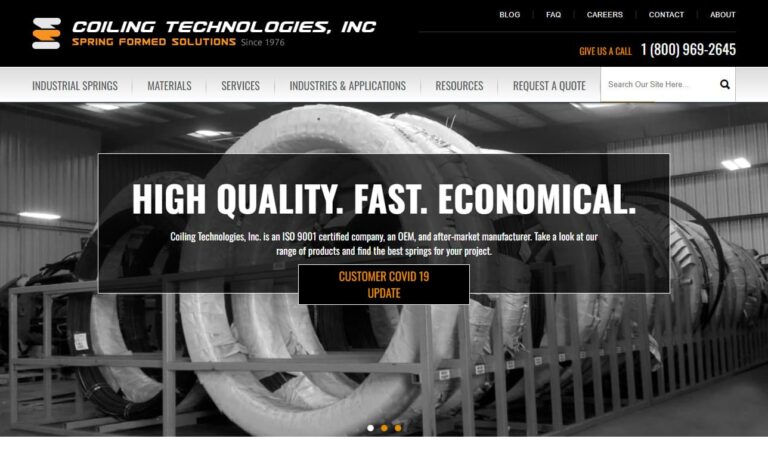
CUSTOM "Spring & Wire Form Specialists" - Ace Wire Spring & Form incorporates the latest CNC equipment technology to manufacture compression, extension, torsion springs, complex wire forms, and spring assemblies. We offer consistent quality, lower costs, on-time deliveries, and Design Engineering Assistance. Range from prototypes to long production runs - Women owned & operated since 1939. Let...
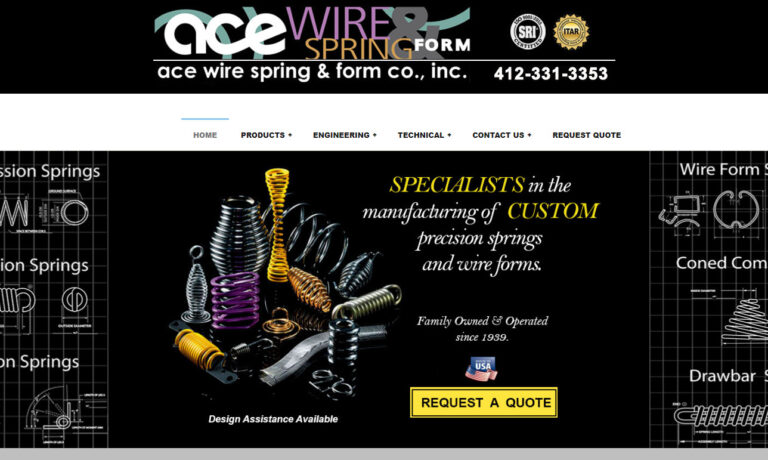
At Sterling Springs LLC, we specialize in manufacturing a wide variety of high-quality springs for various industries and applications. Our product line includes compression springs, coil springs, torsion springs, extension springs, and industrial springs. We take pride in our capabilities to produce springs in a wide range of sizes and shapes, from tiny springs for delicate medical devices to...

We offer years of combined experience and also provide production control, purchasing, and sales. We encourage creativity and empower both employees and customers. Our one-of-a-kind company provides many benefits for all our springs customers.
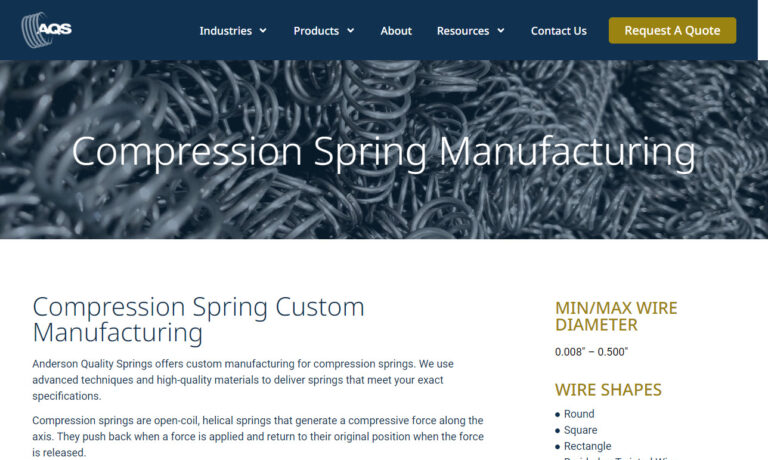
An ISO 9002-registered company, Elyria Spring & Specialty is dedicated to giving you high-quality solutions to your spring needs. We manufacture custom compression springs, torsion springs, extension springs and flat springs at competitive prices. Call today for more information!

New England Spring was founded in 1866. We originally manufactured products such as pulleys & pillow blocks, which are now featured at the Smithsonian in the Industrial Revolution Exhibit. Currently we are distributing industrial springs. These include coil springs, flat springs, compression springs, metal springs, extension springs & torsion springs. Let us help you find the right spring for you.

More Metal Spring Manufacturers
Springs are elastic, and their change in shape depends on the amount of force applied to them. A large amount of force on a spring sometimes deforms it, so it never returns to its original shape. Springs fail through metal fatigue as continuous stretching makes the internal alteration. Spring structures get microcracks in them and eventually break down after repeated use.
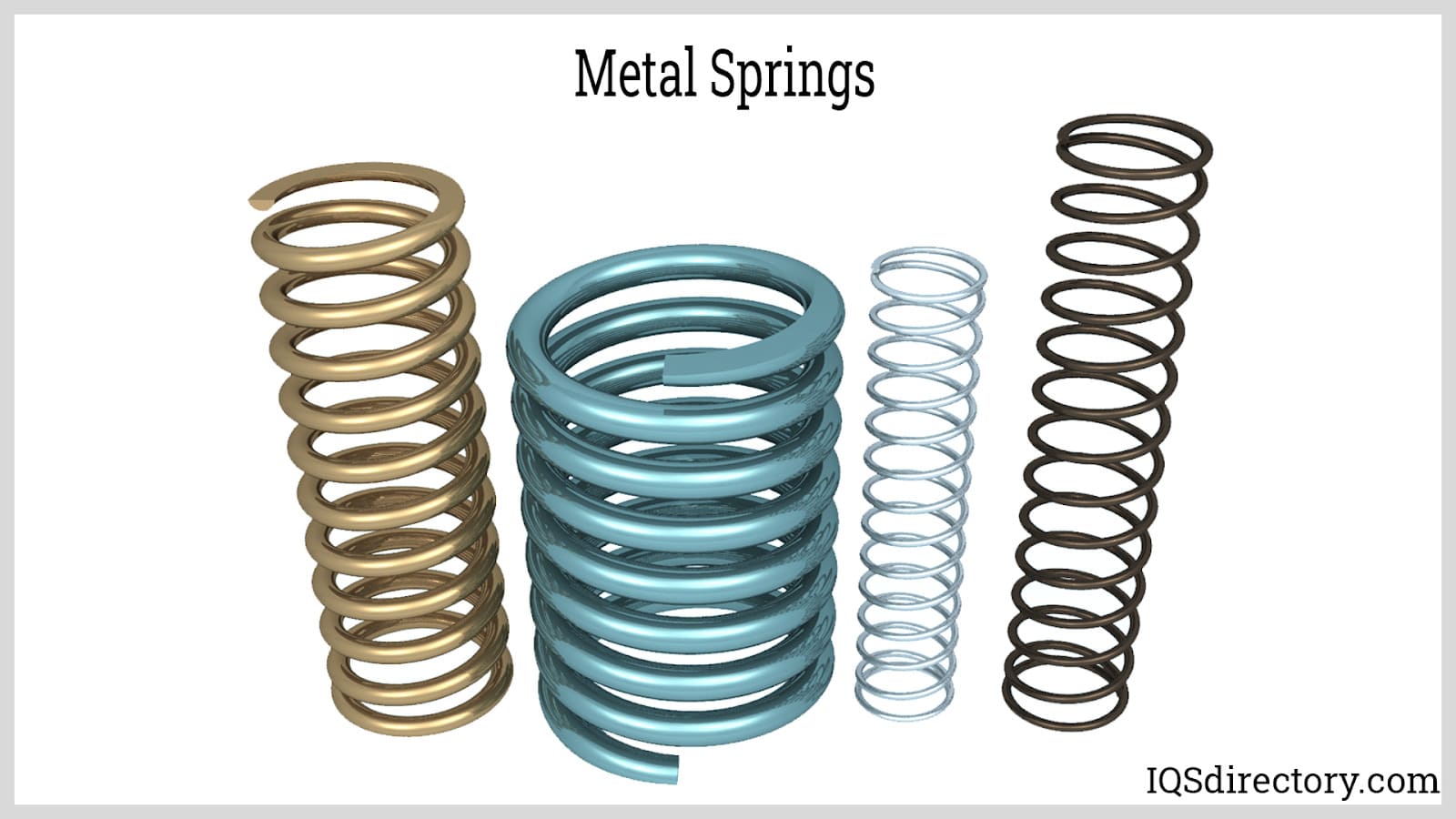
Materials Used in Metal Springs
The composition of metal springs depends on their application, the amount of stress or stretch it has to bear, the heat and temperature it is to cope with, the corrosion to withstand, and the shape of the spring during its manufacture. Generally, all springs are made of steel alloys as it is the most common material.
Other alloys include high carbon, oil tempered low carbon, chrome silicon, chrome vanadium, stainless steel, beryllium copper, phosphor bronze, and titanium. Rubber or urethane material is used for non-coil springs. However, for coiled springs, ceramic material is used to make them work in high-temperature environments. Testing is also done on one-directional glass fiber composite material for using it in spring manufacturing.
Manufacturing Process of Metal Springs
The following steps can describe the manufacturing process of metal springs:
Coiling
The first step is wire coiling, which can be cold winding or hot winding. Cold winding is done at room temperature, while hot winding needs heat treatment for the coiling and is then dipped into oil for rapid cooling.
Hardening
Wires are stressed during the coiling process, but this can be relieved by heating them in an oven at a high temperature for a specific amount of time.
Finishing
Finishing is the last step of the manufacturing process. Shot peening is done to cut out metal fatigue, while coating is done to prevent the spring from corrosion.
Types of Metal Springs
Metal springs are available in a large variety, and their selection depends solely on their application. The most common types are:
Compression Springs
- A compression spring is an open-coiled helical spring that offers resistance to compressive force.
- The coiling is of equal diameter and can be made in any shape.
- It can store energy or resist force depending on the application in which it is used.
Torsion Springs
- Torsion springs exert torque or rotary force.
- These springs are attached to the component, and when it rotates, the spring pushes them back to their original space.
- These springs can work clockwise and anticlockwise depending on their application.
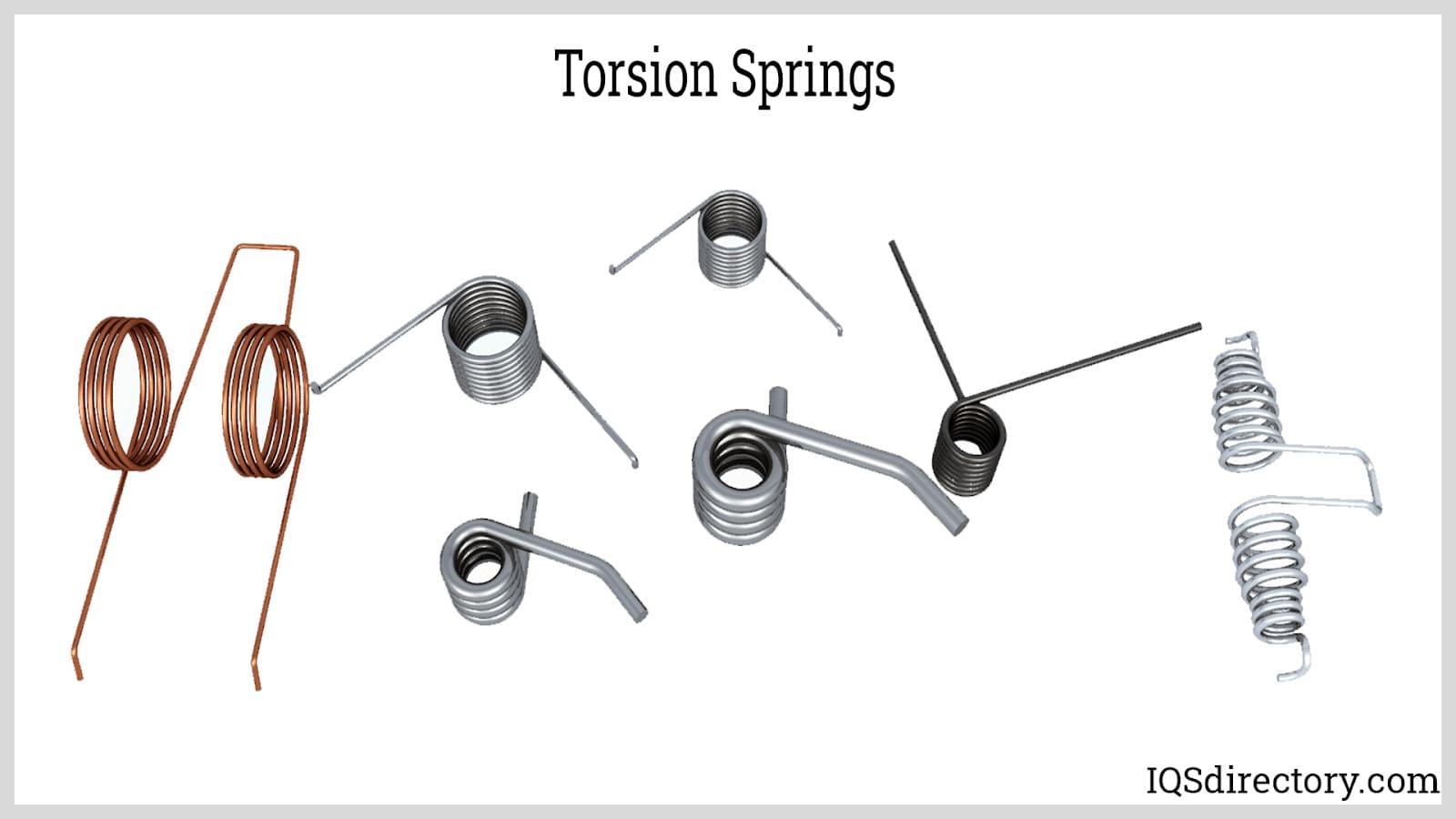
Extension Springs
- Extension springs can store energy as well as offer resistance upon expansion.
- These springs are attached to components on both sides.
- They offer resistance upon expansion and return to their original position when released.
Constant Force Springs
- It is the most basic and versatile spring of all.
- It is a pre-stressed flat strip of spring placed around its own radius.
- It works nearly the same as the extension spring.
- A constant torque is achieved if the spring is attached to another spool.
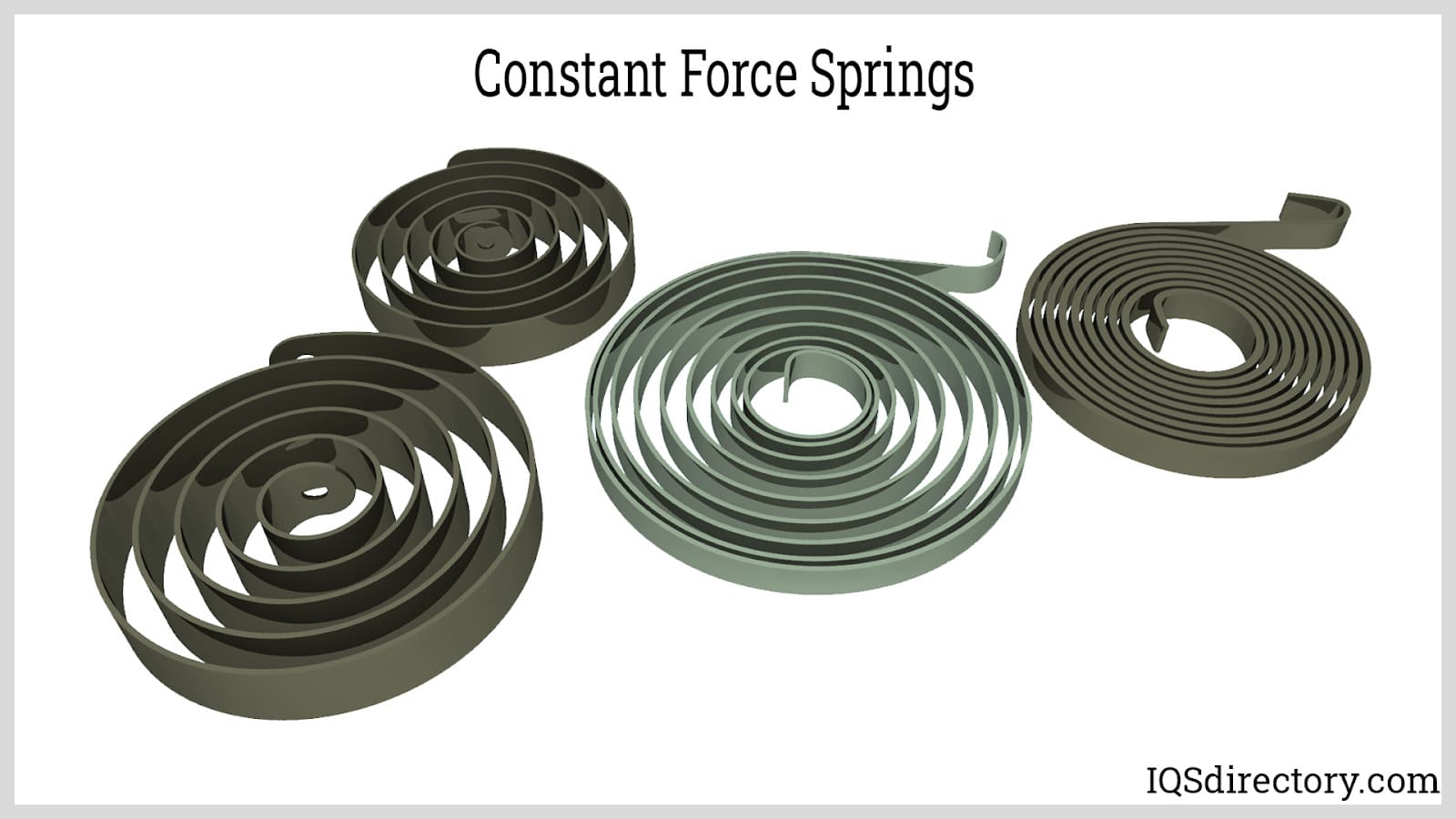
Belleville Springs
- These are slightly tapered disc-like springs, also known as washers.
- These are used for pre-tensioning purposes and are available in various materials.
Drawbar Springs
- Drawbar springs are ideal to use in overload situations.
- These offer a built-in safety feature to carry on the static load.
- The load is applied on the ends of steel bars and then passed to the center of the spring, offering compression.
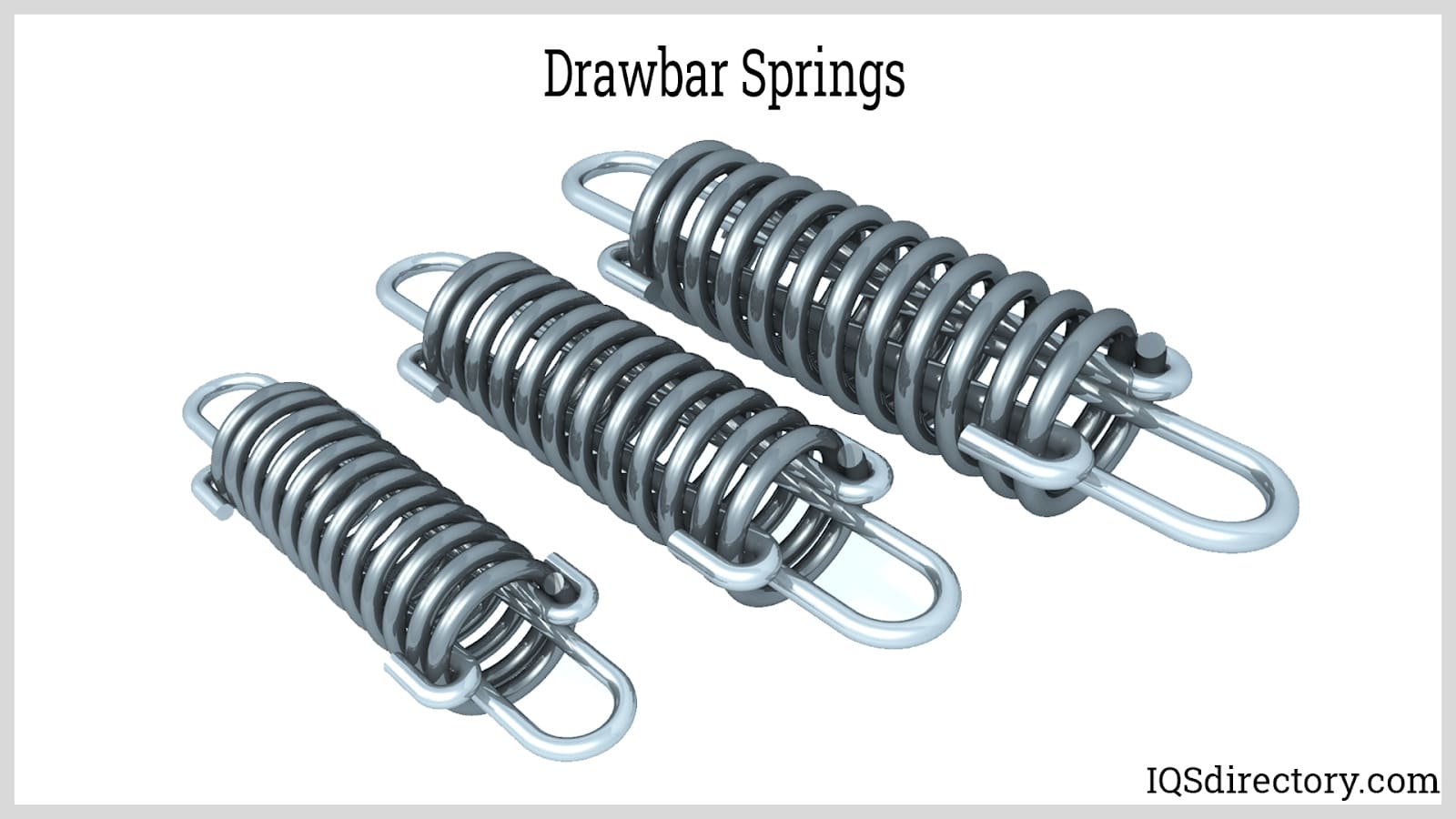
Volute Springs
- It is a cone-shaped compression spring.
- These are compressed to a very short length compared to the conventional helical springs.
- They are mainly used in garden secateurs.
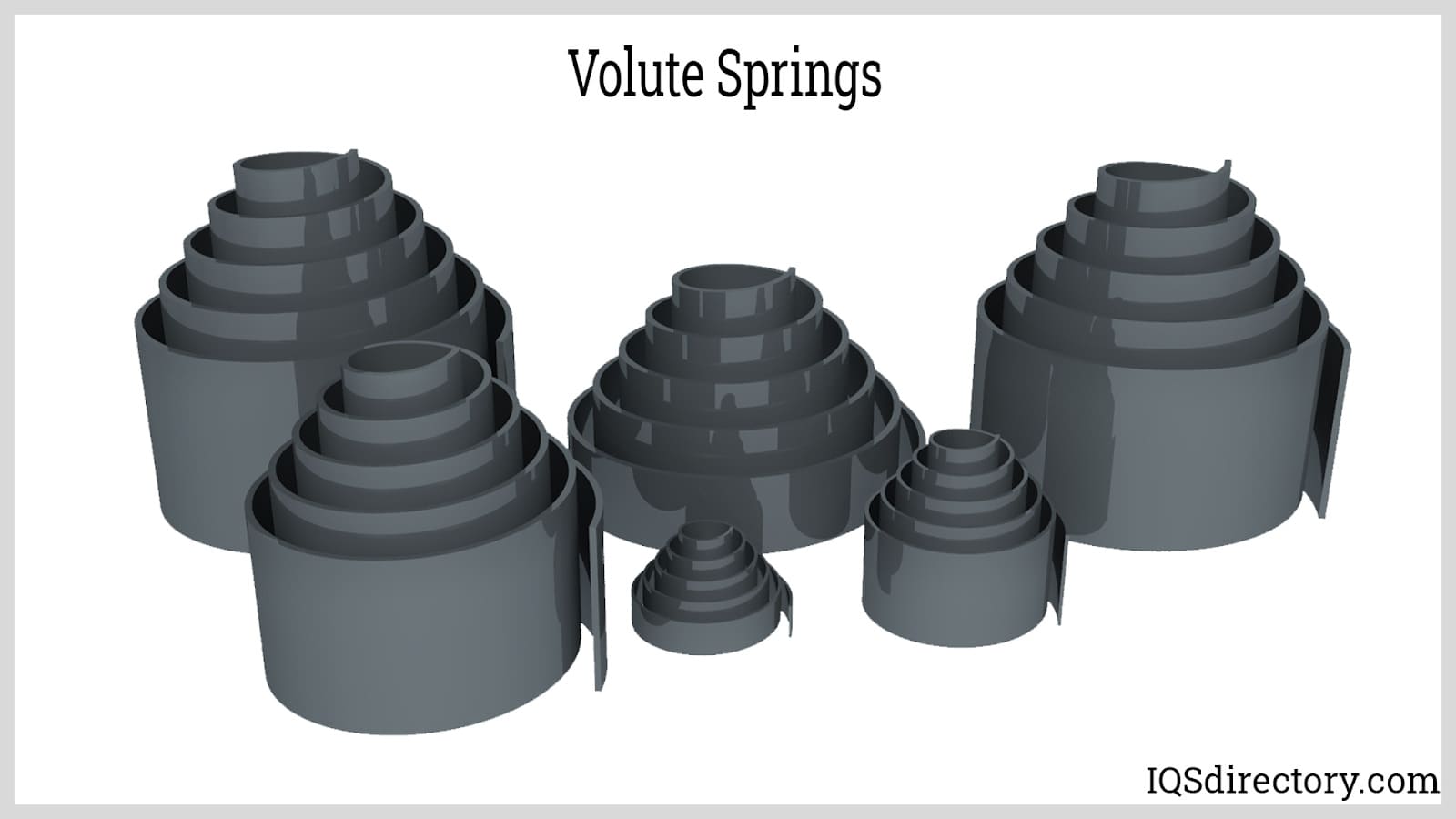
Garter Springs
- It is a coiled steel spring that’s both ends are connected to give it a circular shape.
- These are found in oil seals, shaft seals, and electrical connectors.
- The material used for its manufacture is either carbon steel or stainless steel wire.
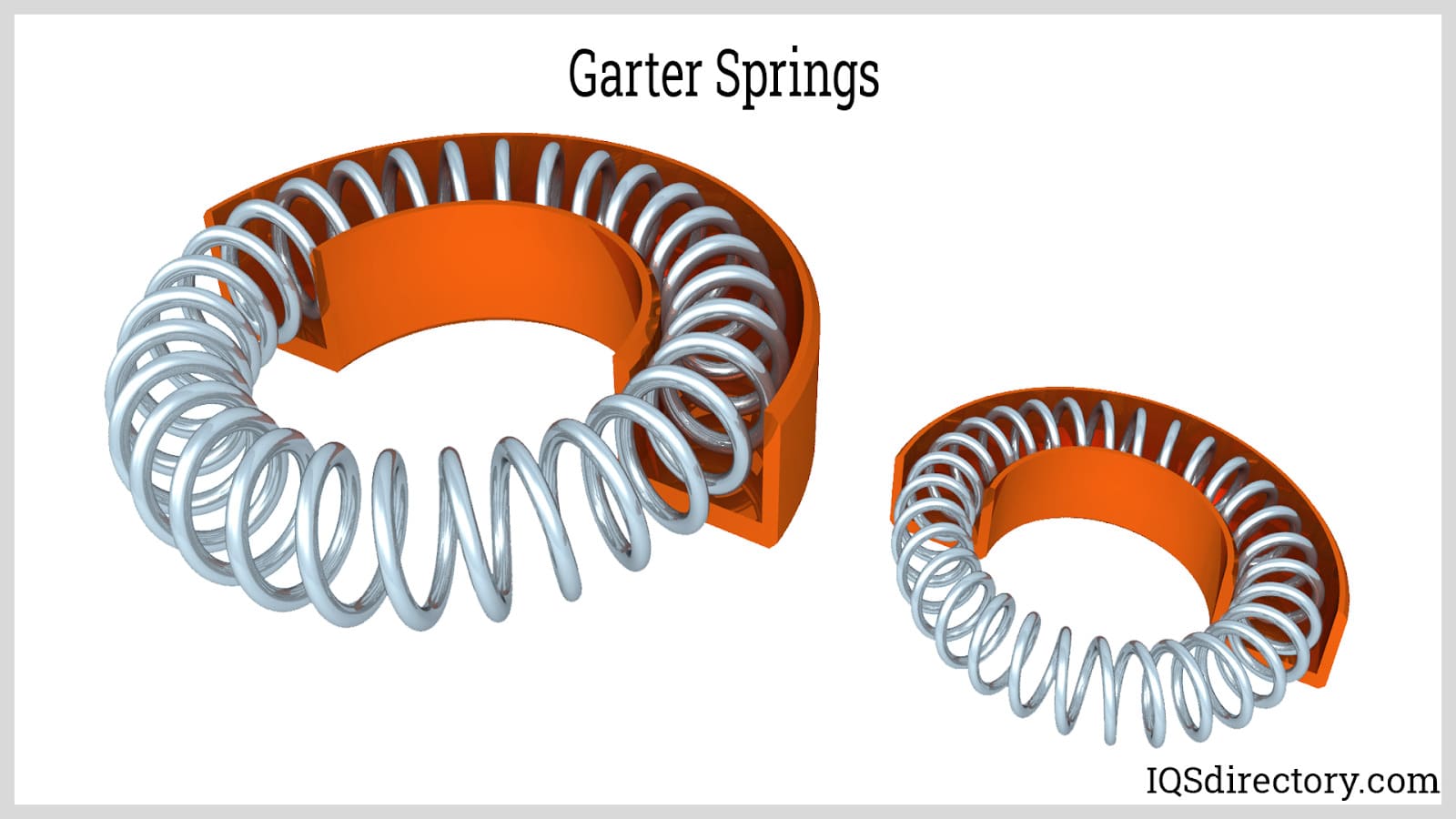
Flat Springs
- Flat springs are small, stamped metal components that work as a spring.
- These are flat springs that control deflection in small and restricted spaces.
- These springs store and release energy and are made from high carbon steel, copper alloys, or titanium alloys, according to the application.
Air Springs
- Air springs are air pressurized bellows or bladder-type devices.
- These are used in shock absorption and vibration isolation.
- These are also known as air cushions used in lifting and compression.
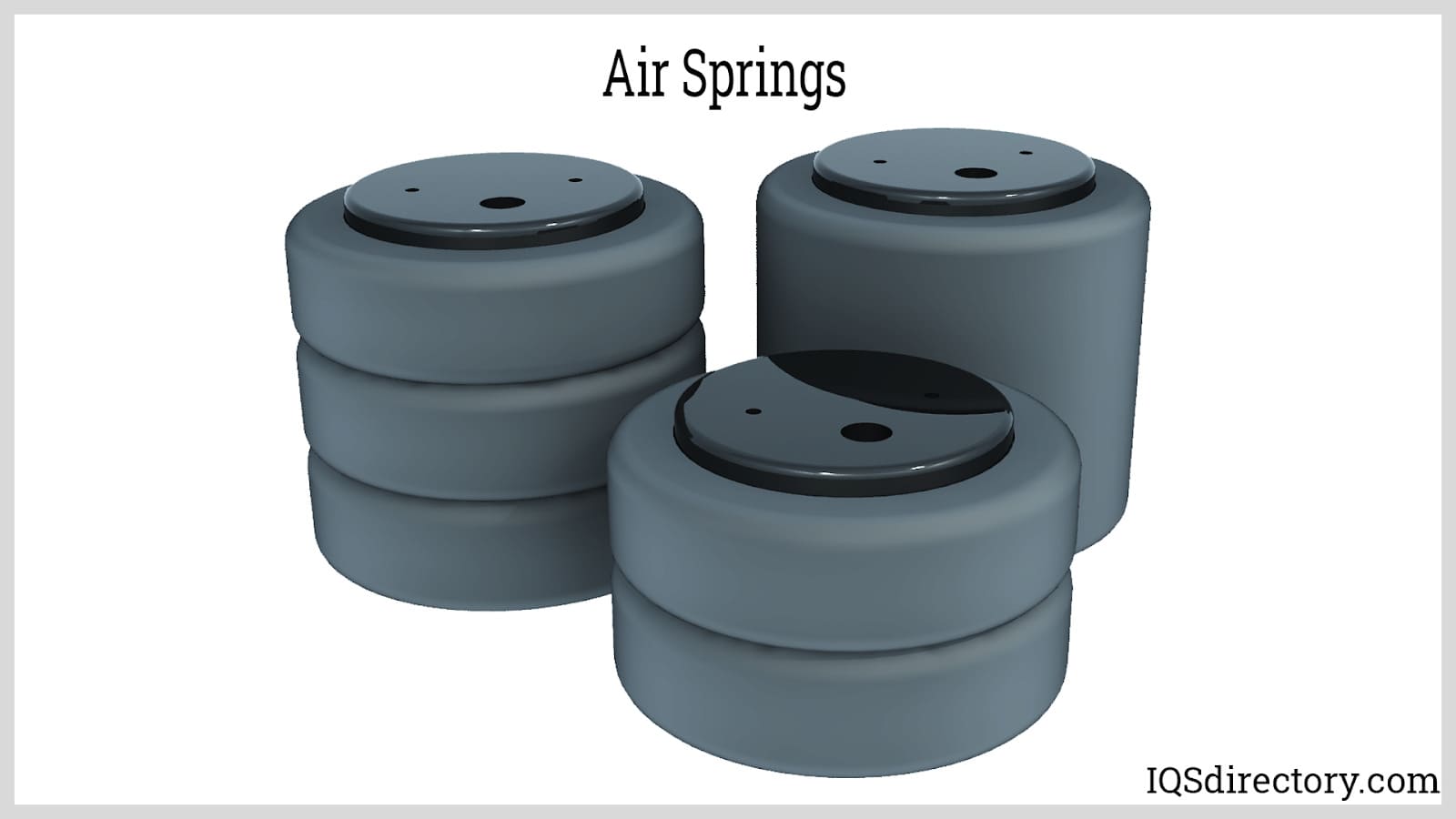
Applications of Metal Springs
Metal springs are used in the automobile industry for clutches, brakes, and shock absorbers. These are also used in gardening tools, doors, windows, spring balance, watches, toys, and many other household items.
Choosing the Proper Metal Springs Manufacturer
To make sure you have the most productive outcome when purchasing metal springs from a metal spring manufacturer, it is important to compare at least 4 to 5 companies using our metal springs directory. Each metal springs manufacturer has a business profile page that highlights their areas of experience and capabilities and a contact form to directly communicate with the manufacturer for more information or request a quote. Review each metal springs business website using our patented website previewer to get an idea of what each company specializes in, and then use our simple RFQ form to contact multiple metal spring companies with the same quote.

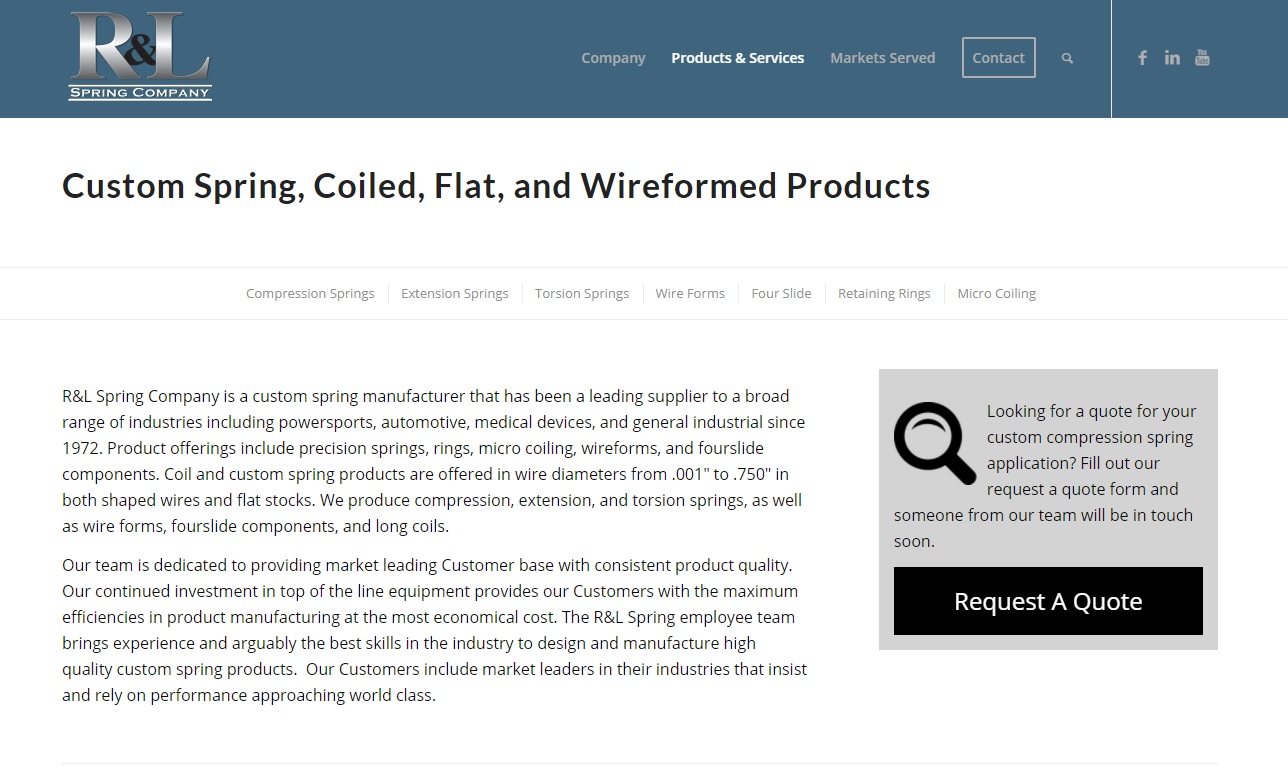
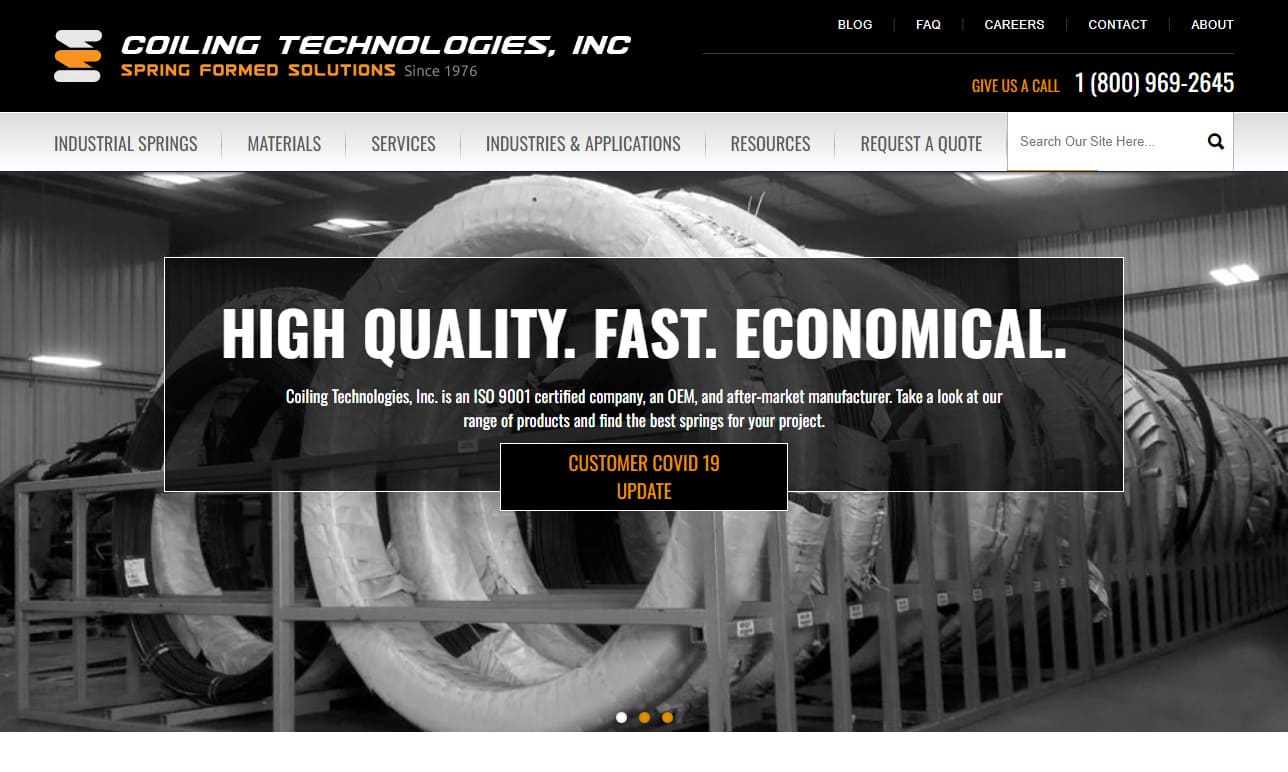
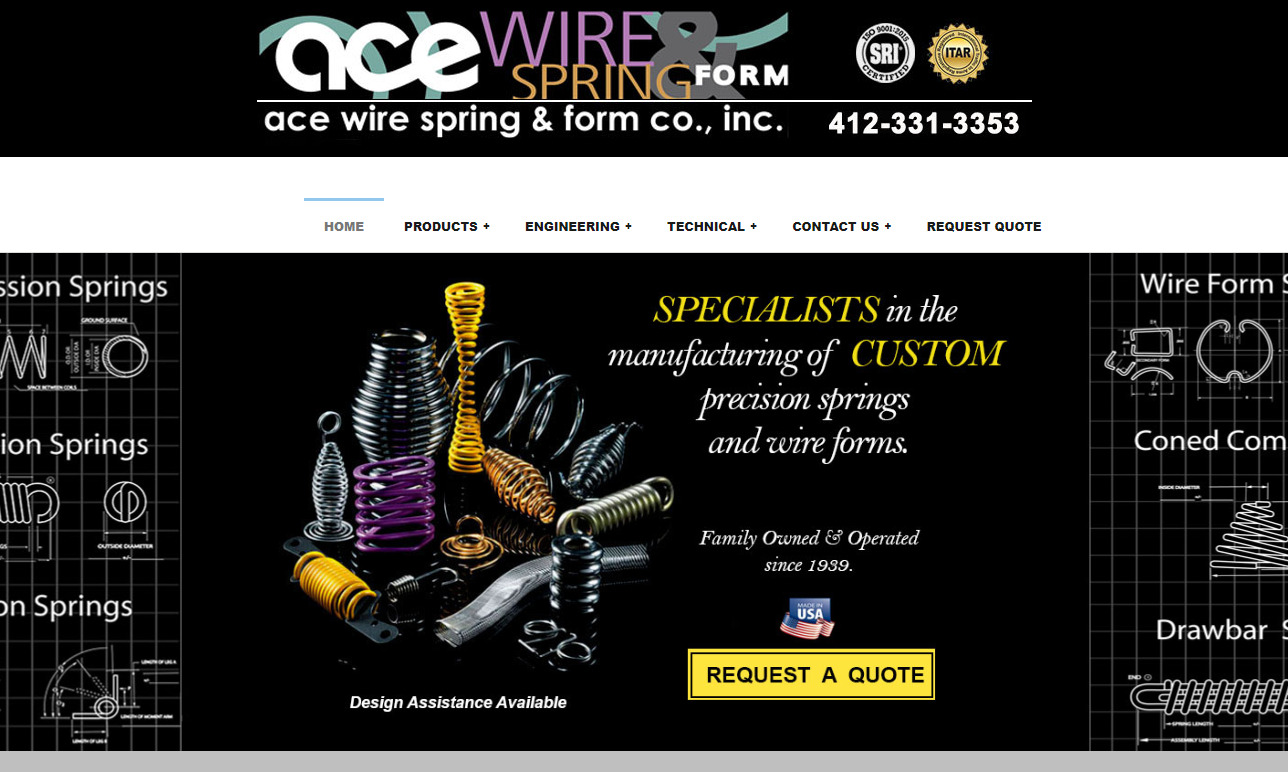
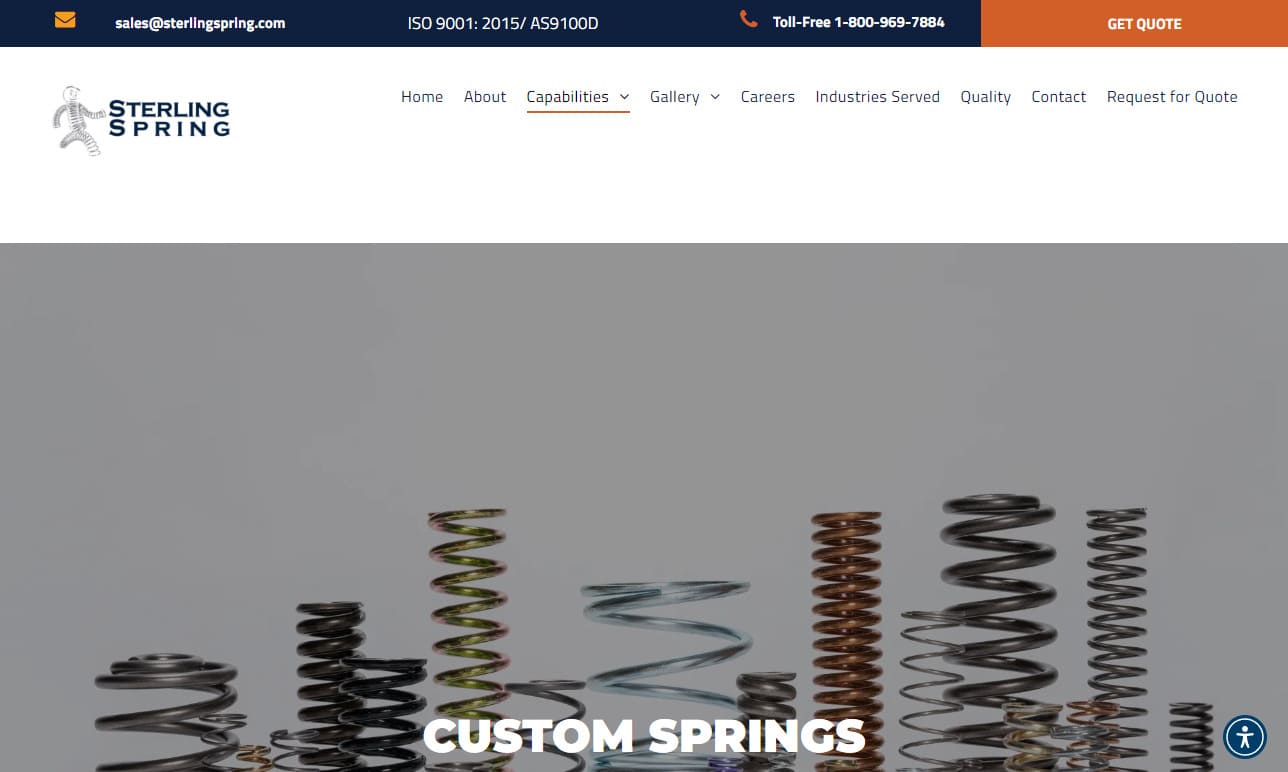
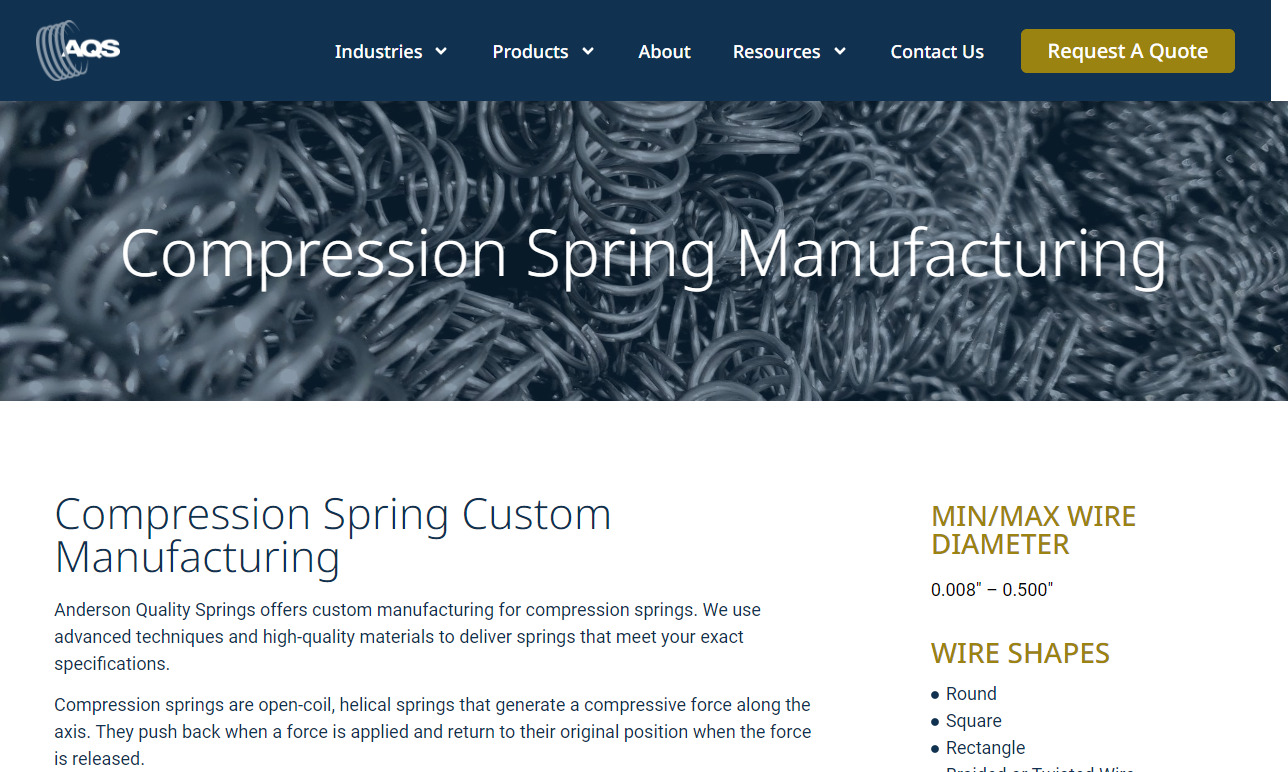

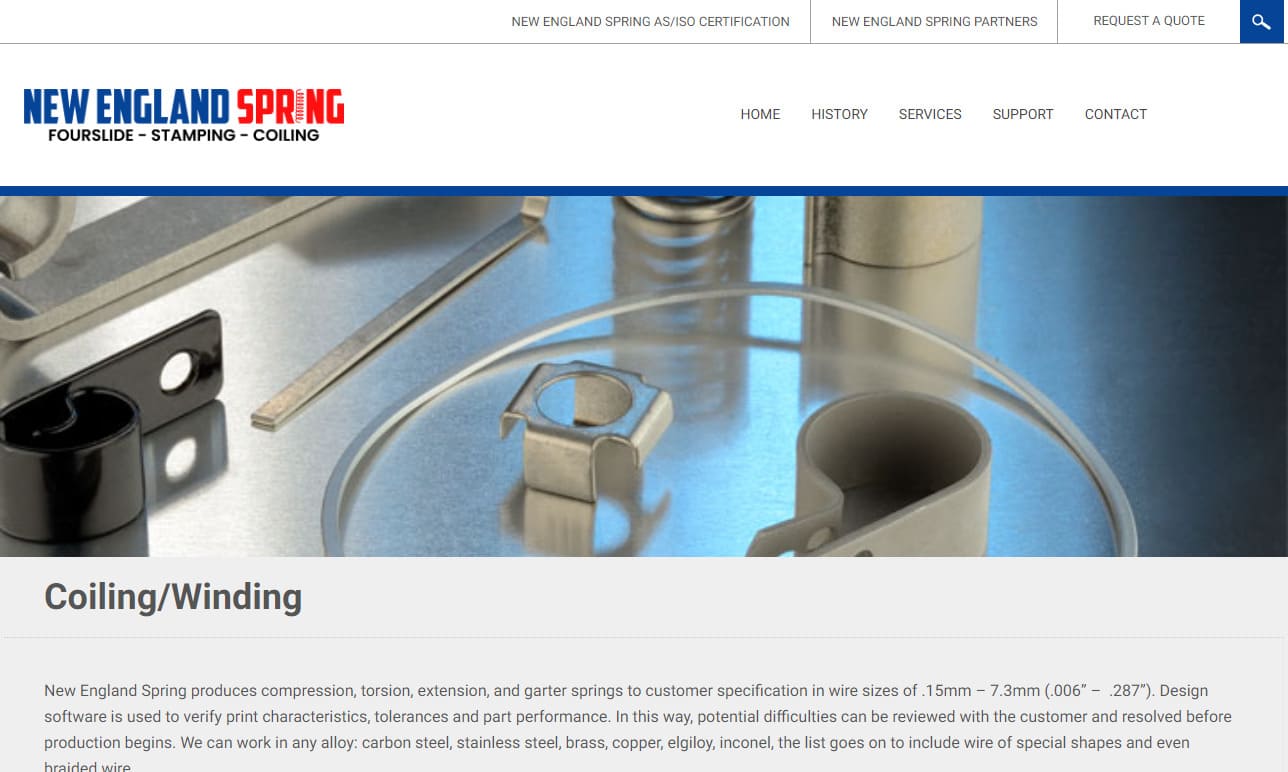
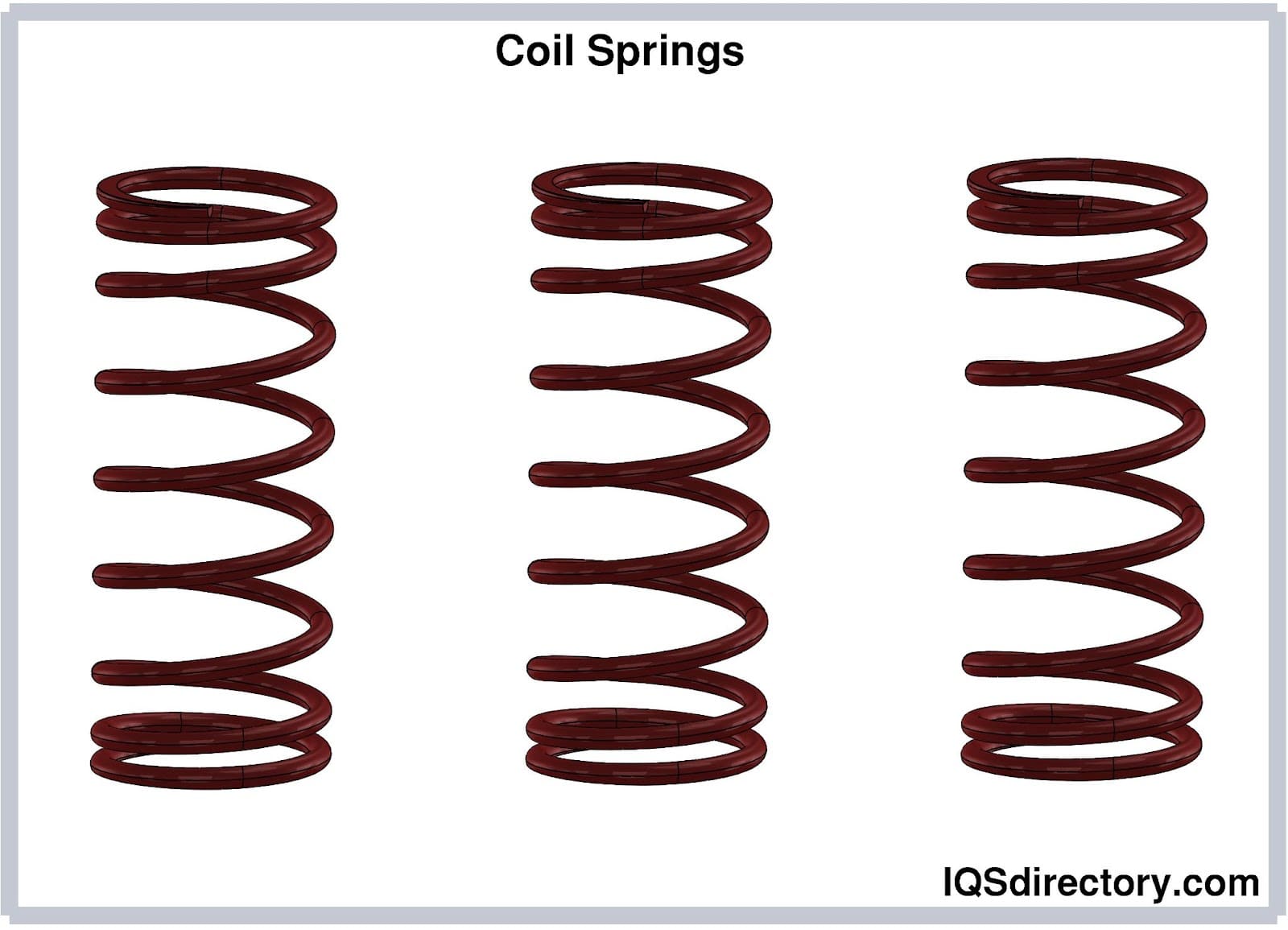
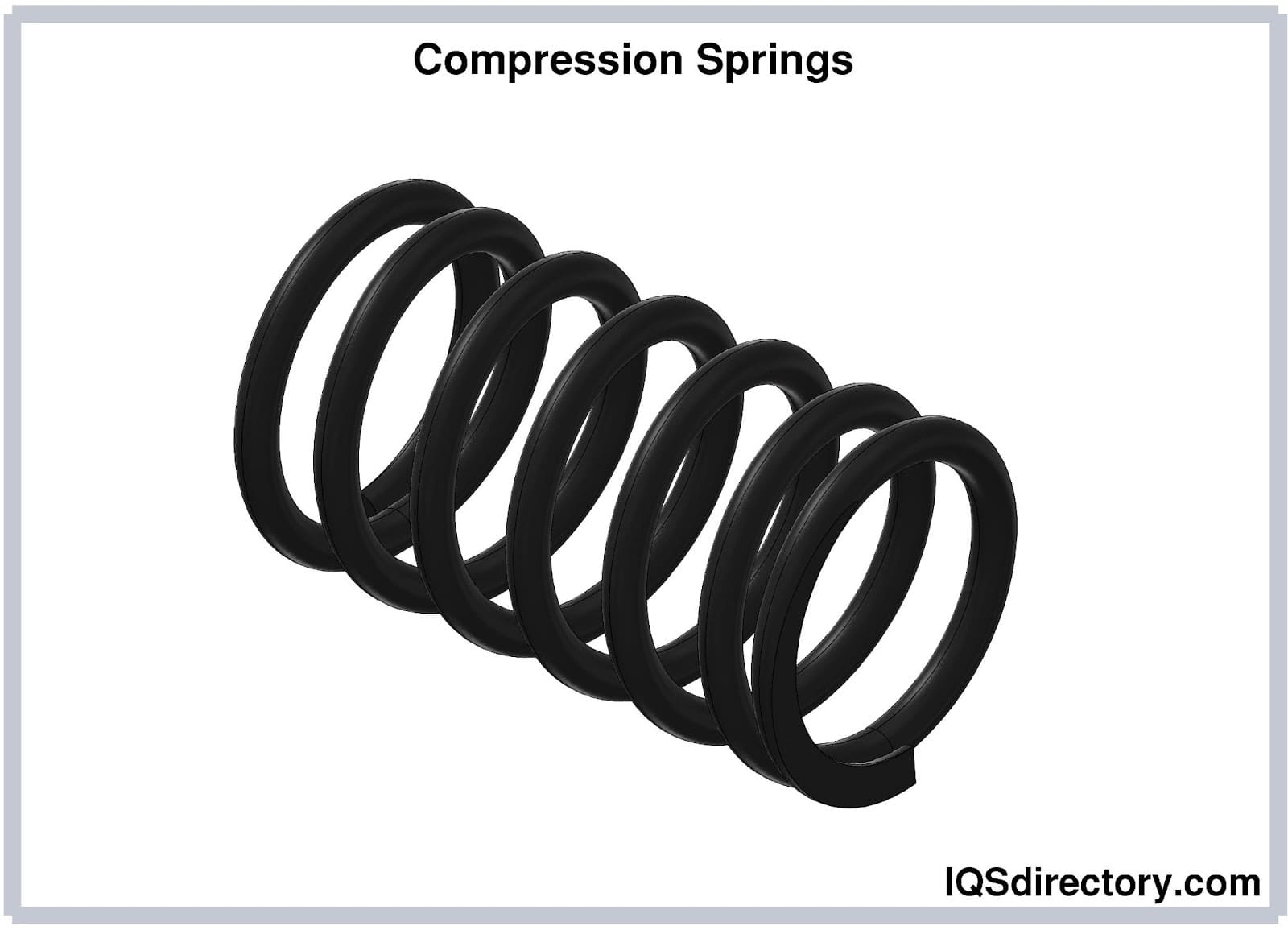
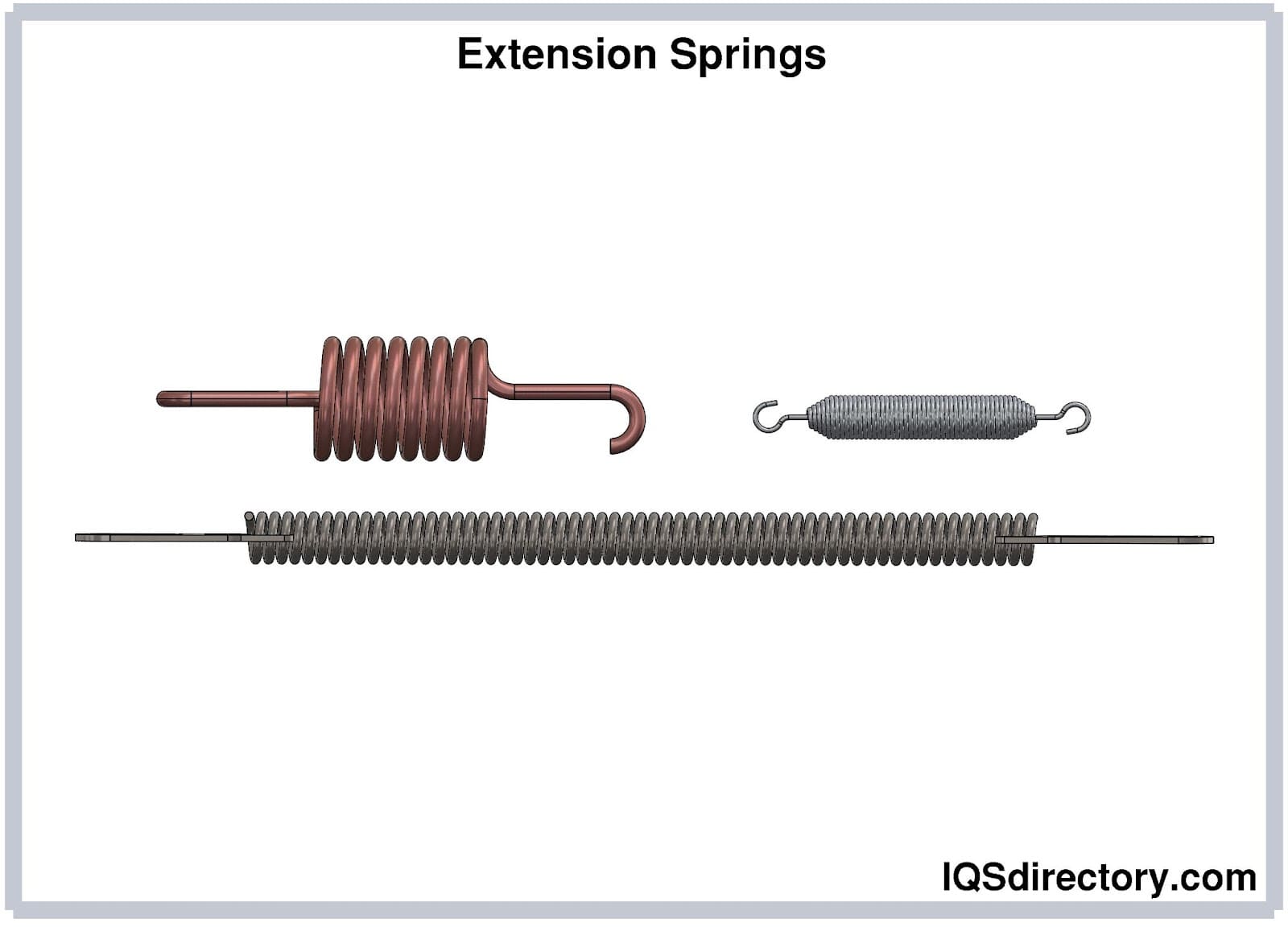
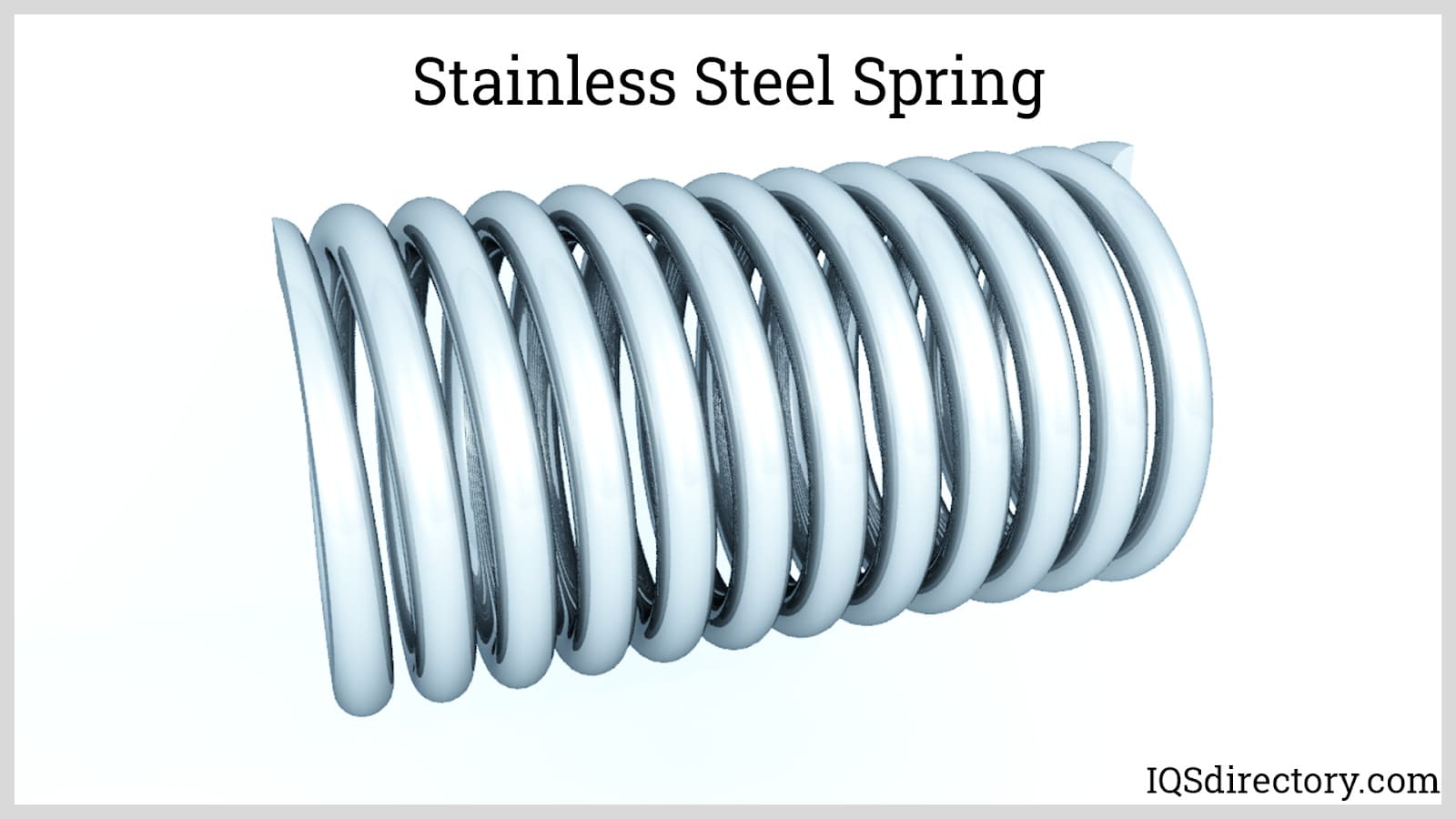
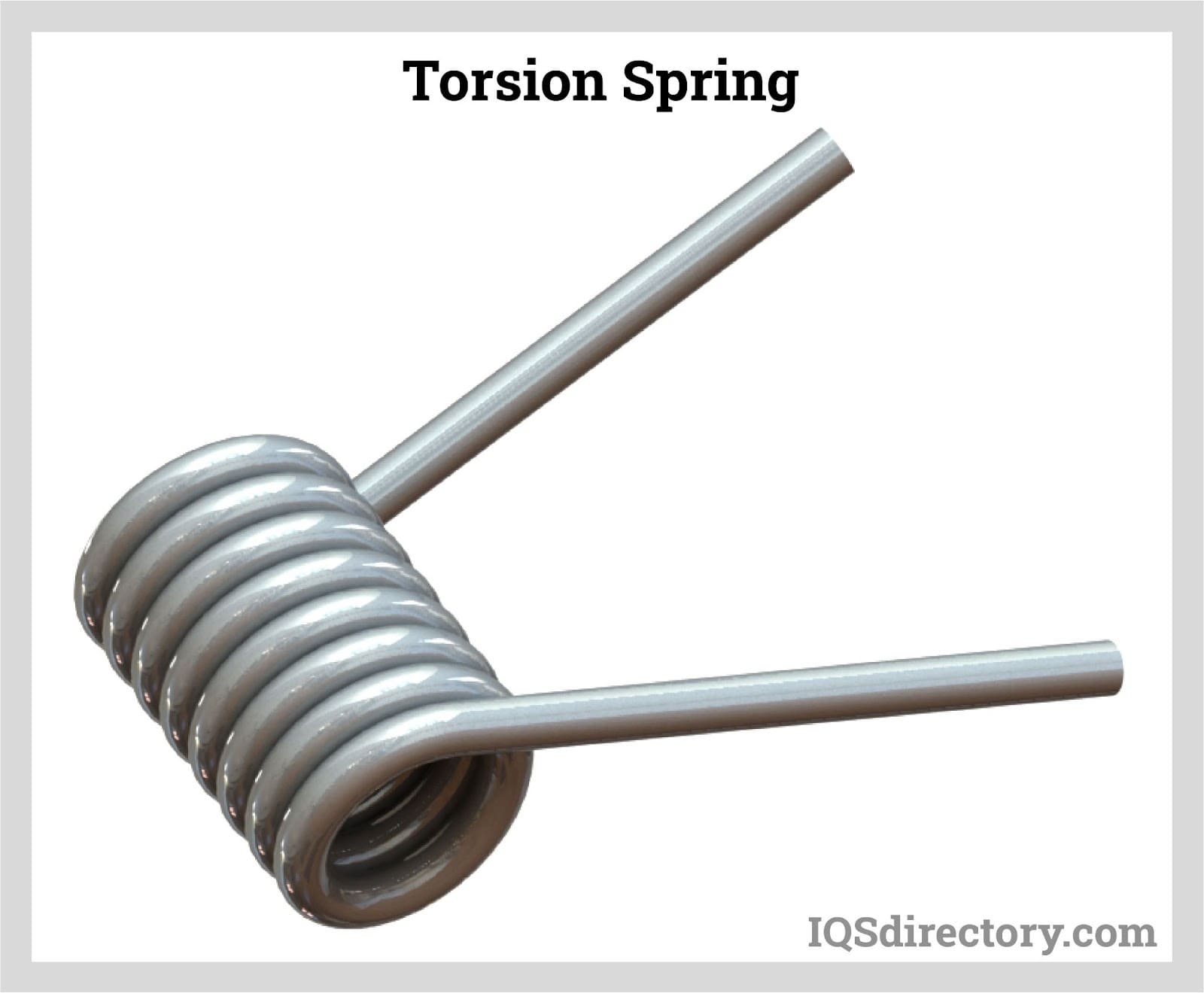
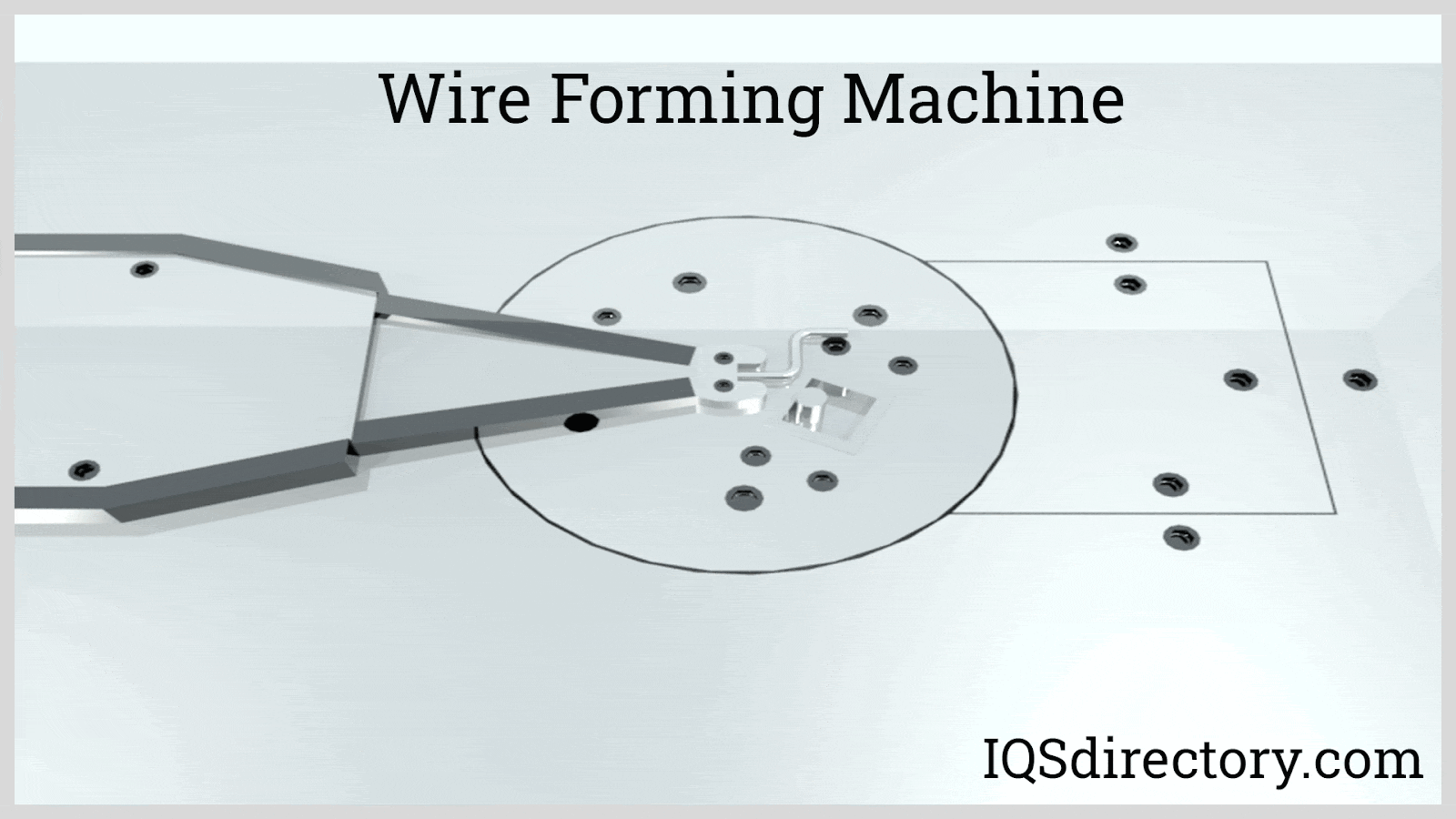
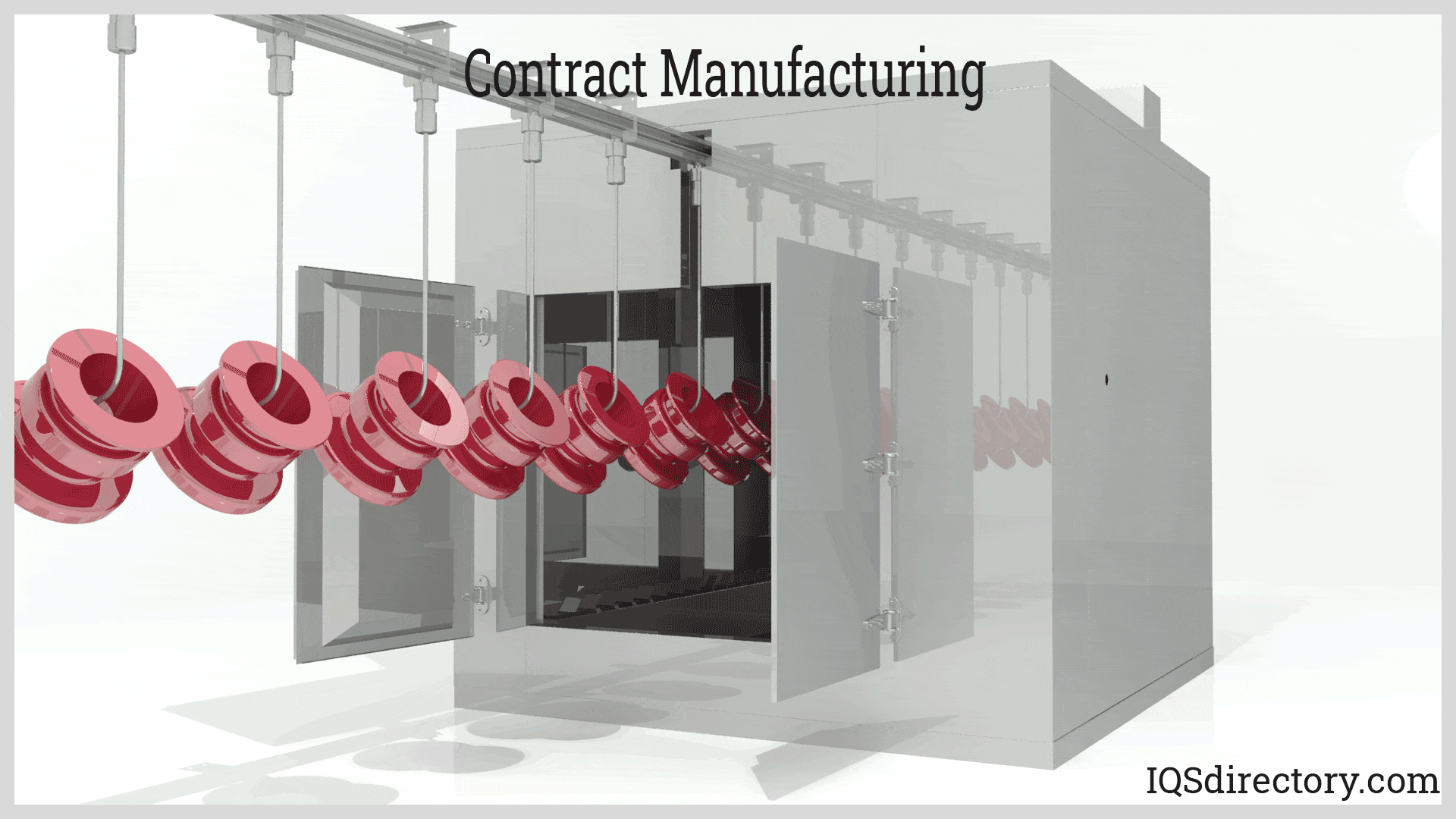
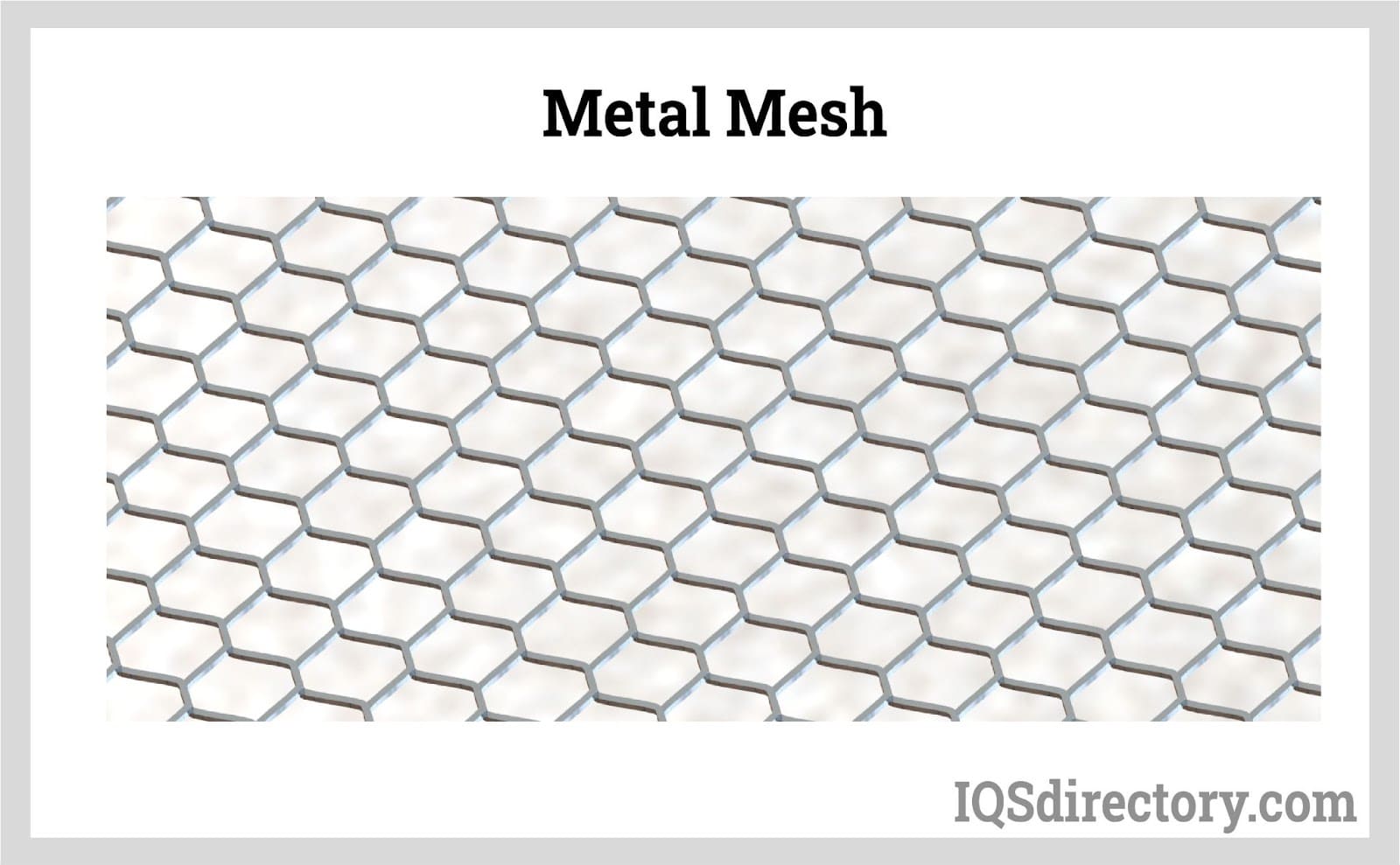
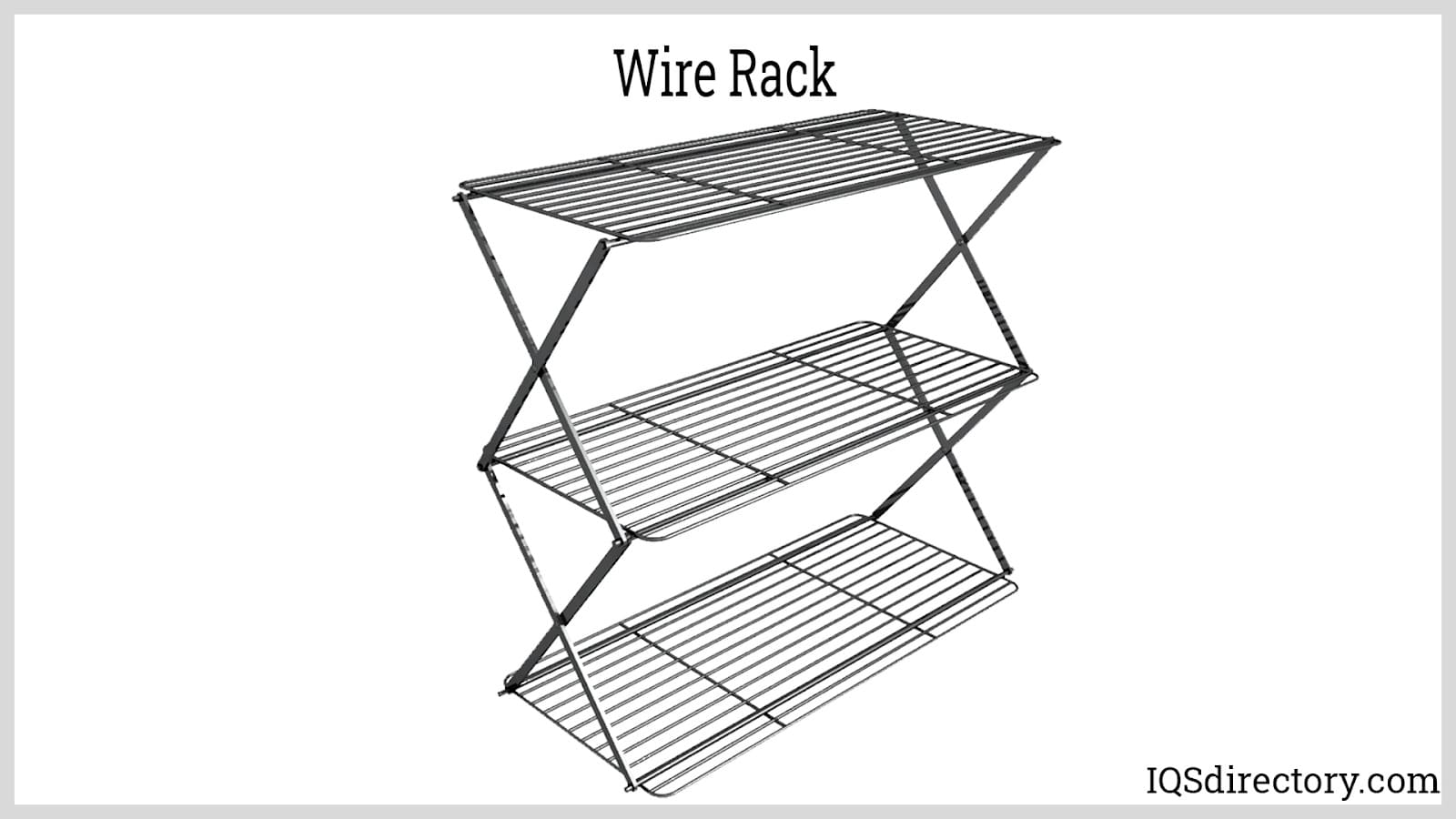
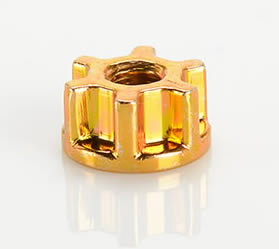 Cold Headed Parts
Cold Headed Parts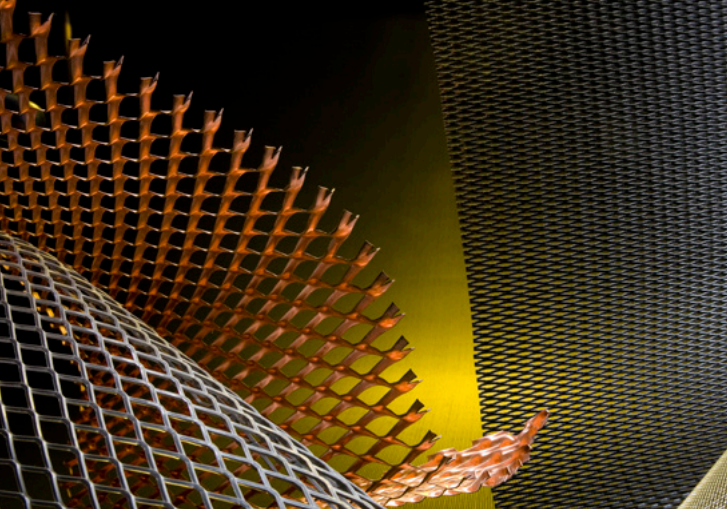 Expanded Metals
Expanded Metals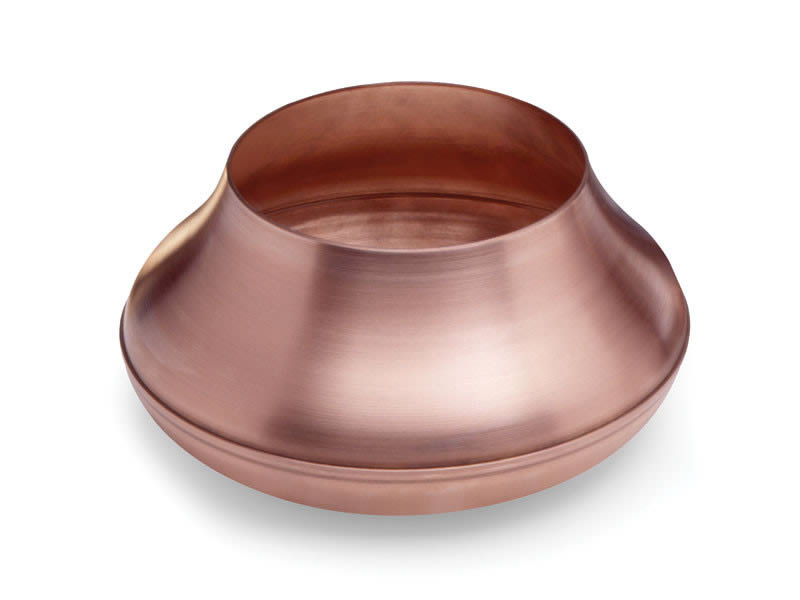 Metal Spinning
Metal Spinning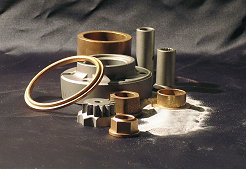 Powdered Metal Parts
Powdered Metal Parts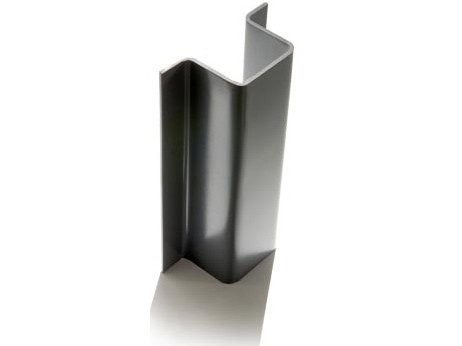 Roll Forming
Roll Forming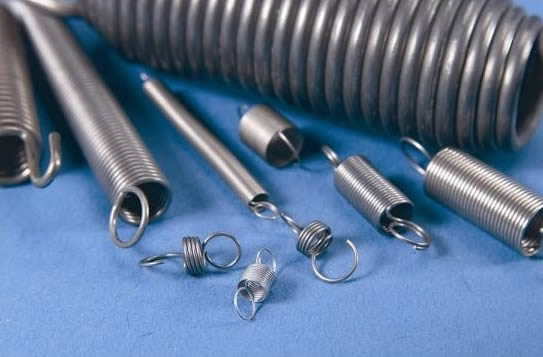 Springs
Springs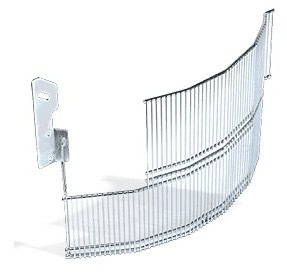 Wire Forms
Wire Forms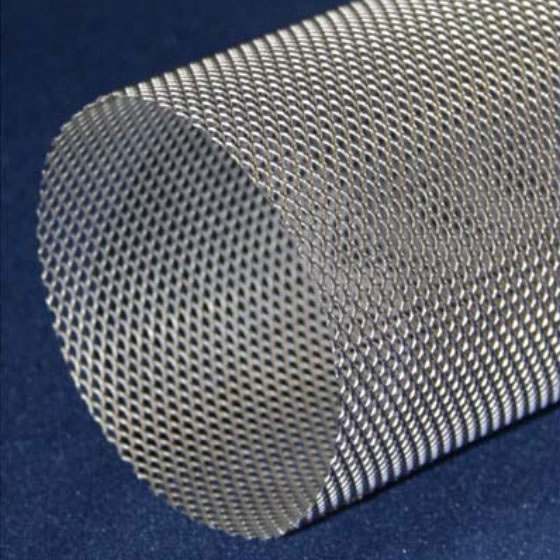 Wire Mesh
Wire Mesh Castings & Forgings
Castings & Forgings Bulk Material Handling
Bulk Material Handling Electrical & Electronic Components
Electrical & Electronic Components Flow Instrumentation
Flow Instrumentation Hardware
Hardware Material Handling Equipment
Material Handling Equipment Metal Cutting Services
Metal Cutting Services Metal Forming Services
Metal Forming Services Metal Suppliers
Metal Suppliers Motion Control Products
Motion Control Products Plant & Facility Equipment
Plant & Facility Equipment Plant & Facility Supplies
Plant & Facility Supplies Plastic Molding Processes
Plastic Molding Processes Pumps & Valves
Pumps & Valves Recycling Equipment
Recycling Equipment Rubber Products & Services
Rubber Products & Services